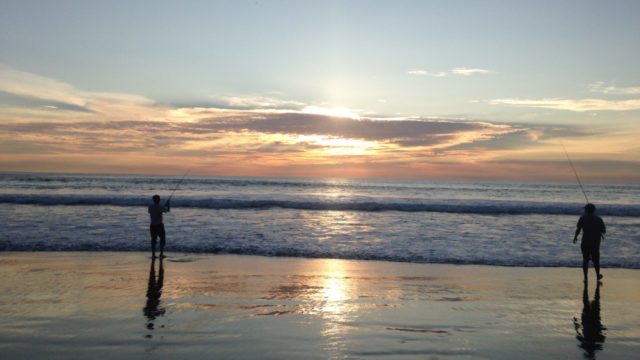“The greatest discovery of any generation is that a human can alter his life by altering his attitude.”
William James
The thinnest of mental boundaries separates the darkest from the brightest thoughts. Our mind, it appears, can travel enormous moral distances in the blink of an eye within its imaginary space. From imagining murder or suicide to planning a wedding or feeding the baby. It’s a dizzying crisscrossing of thoughts that can occur nearly instantaneously without any impediment or remorse. Only when contemplating action or the outcome of these imaginary ideas do we encounter a moral universe. Within this thought-action universe where right and wrong exists, there is a metaphorical “thin blue line” separating order from disorder. It’s a mental safeguard that keeps us safe and sane in a dangerous and insane world.
One sign of sanity in crazy times is when the world becomes too wonderful to ignore. When the gauzy filter of bad, depressing, and sad news lifts and we see spread before us the bare awareness of what life really is. In those moments, life appears beautiful. What we need to realize is that life, through the filter of our mind, creates innumerable experiences we can tune into. But we have a choice of which experiences to attend. We can, for example, overdose on CNN or FOX news. This creates a sense of doom and gloom given the constant barrage of current disasters taking place in the world or the political shenanigans of our leaders. Or we can change the sensory channel and walk outside to observe the variety of flowers, the blue radiant sky, and our smiling neighbors. We can indulge our appetite for porn to exhaustion, or pick up a Bible, the Tao Te Ching, and Bhagavad Gita and marvel at human wisdom. We can feel sorry for ourselves and fuel our anxiety and depression or reach out our hand to help those in greater need. These choices need not be black or white, there are shades. The amazing thing is that we have choices and each one produces a different mental experience.
Choice becomes harder to exercise when pleasure, pain, or other emotions overwhelm the rational self. We can even reach a point of no apparent alternative and no escape. In such a place, we feel closed off to other avenues and the only path seems to be to end our life. But even then, we have a choice. The choice is to let go of our sense of control and let something else, something greater than ourselves, take over. This is the ultimate choice, the thin blue line of the mind, and its greatest safeguard.
While the pressures of life can exacerbate our difficulties, the root of the problem is our anxious, fear-based, and uncontrollable mind, one centered on ego-based rumination.
When the mind dwells on problems through the viewpoint of past and future, it can get snagged in that mode. It then behaves as what the Buddha called the “monkey mind.” This mind causes confusion and helplessness when unmanaged. The solution, however, is not to get rid of it but to place its operation in the proper context. For the monkey mind is also the creative mind. Training and guiding the monkey mind back to a more natural and original state ignites creativity, allowing us to deal with the challenges of living in-the-moment. But this return to an original mind does not mean you gain something new, rather you lose something old. You lose the obsession with past and future. And when you lose this obsession, you experience flowing, problem-solving, present-moment creative living. And this realization, the crossing of this boundary, is the best indicator that whatever or whoever created us did so lovingly. For it wanted us to choose life over death. While many discover this thin blue line by accident or in desperation, it is always available, at any moment we choose.




